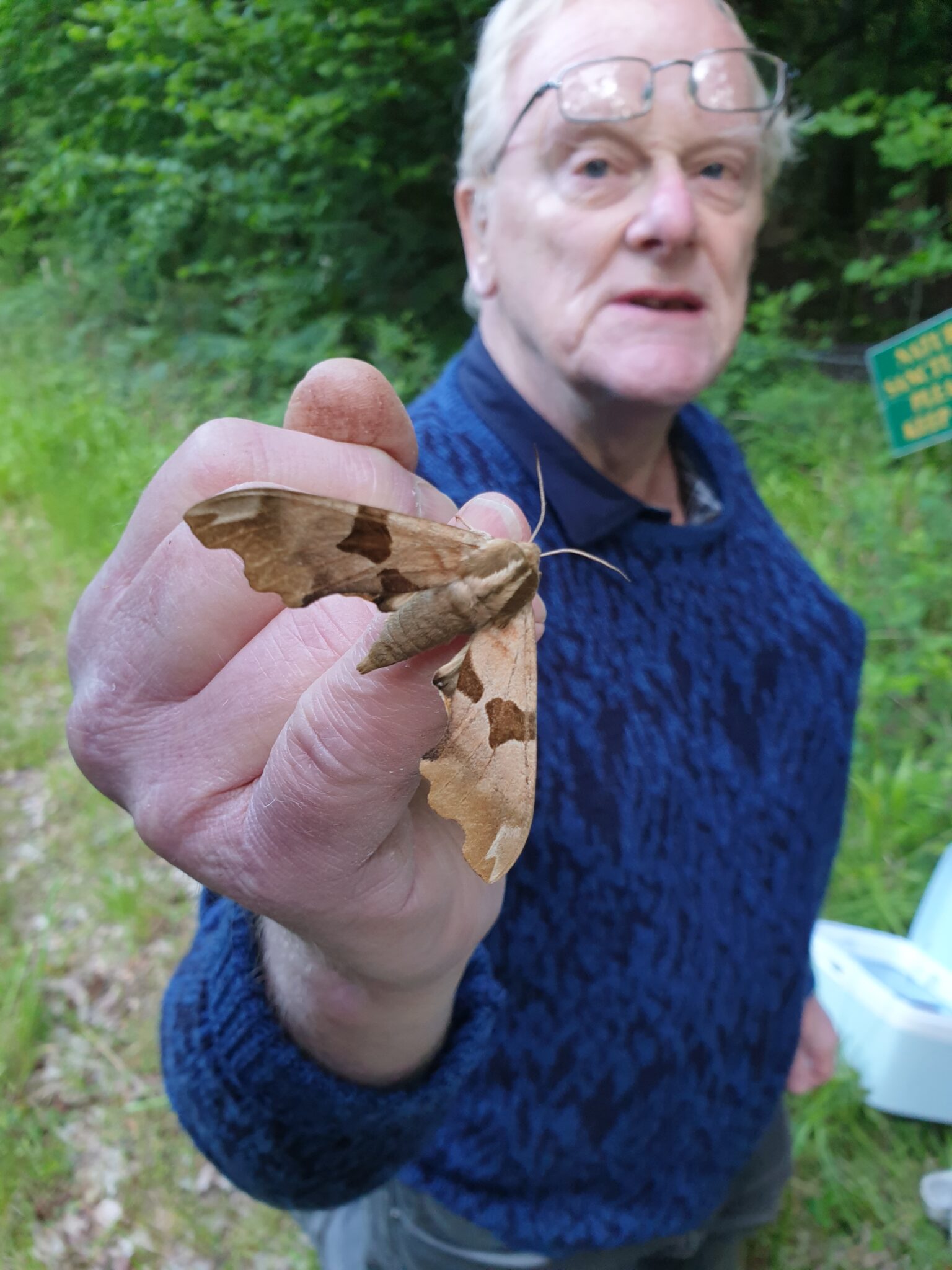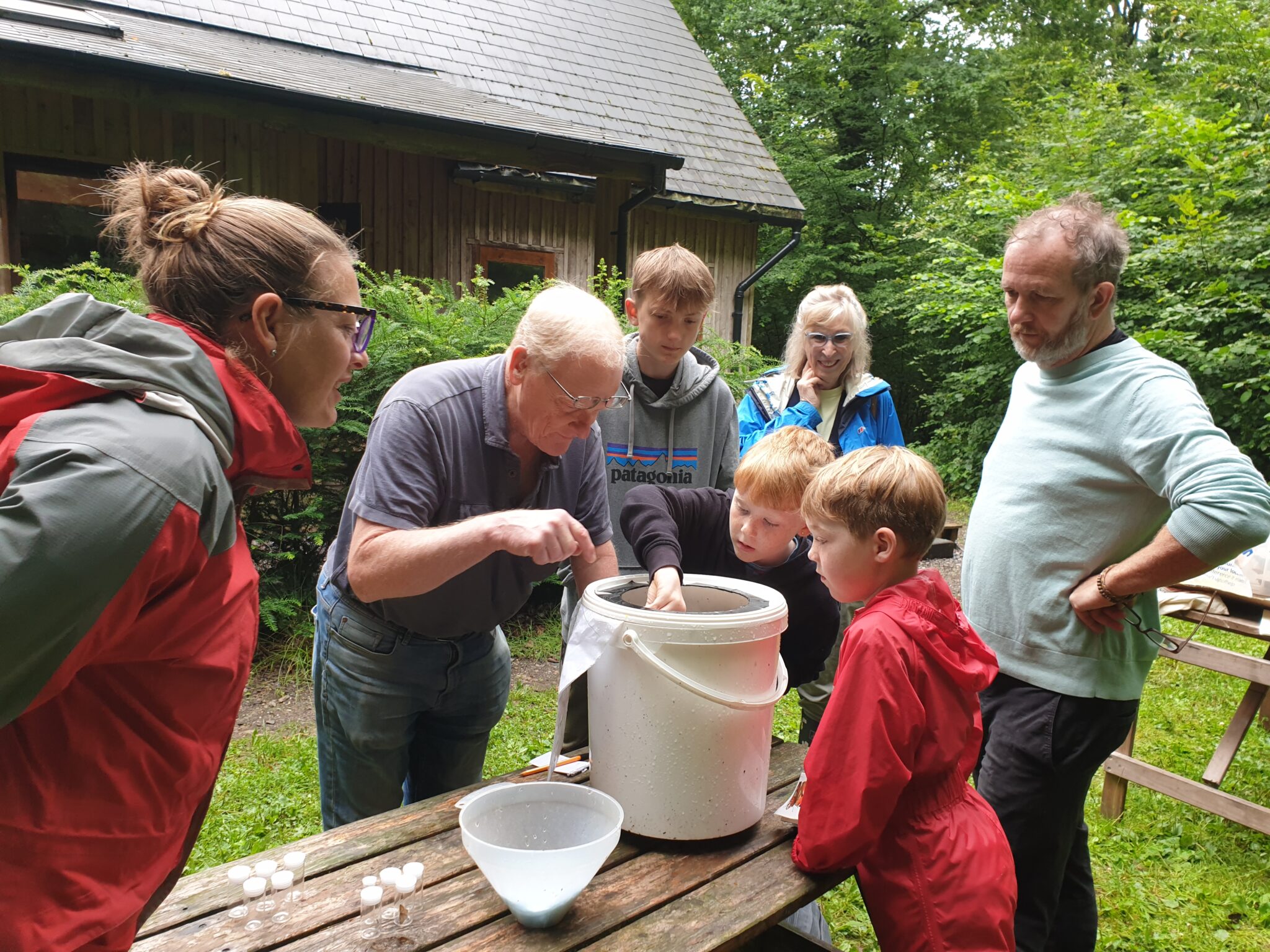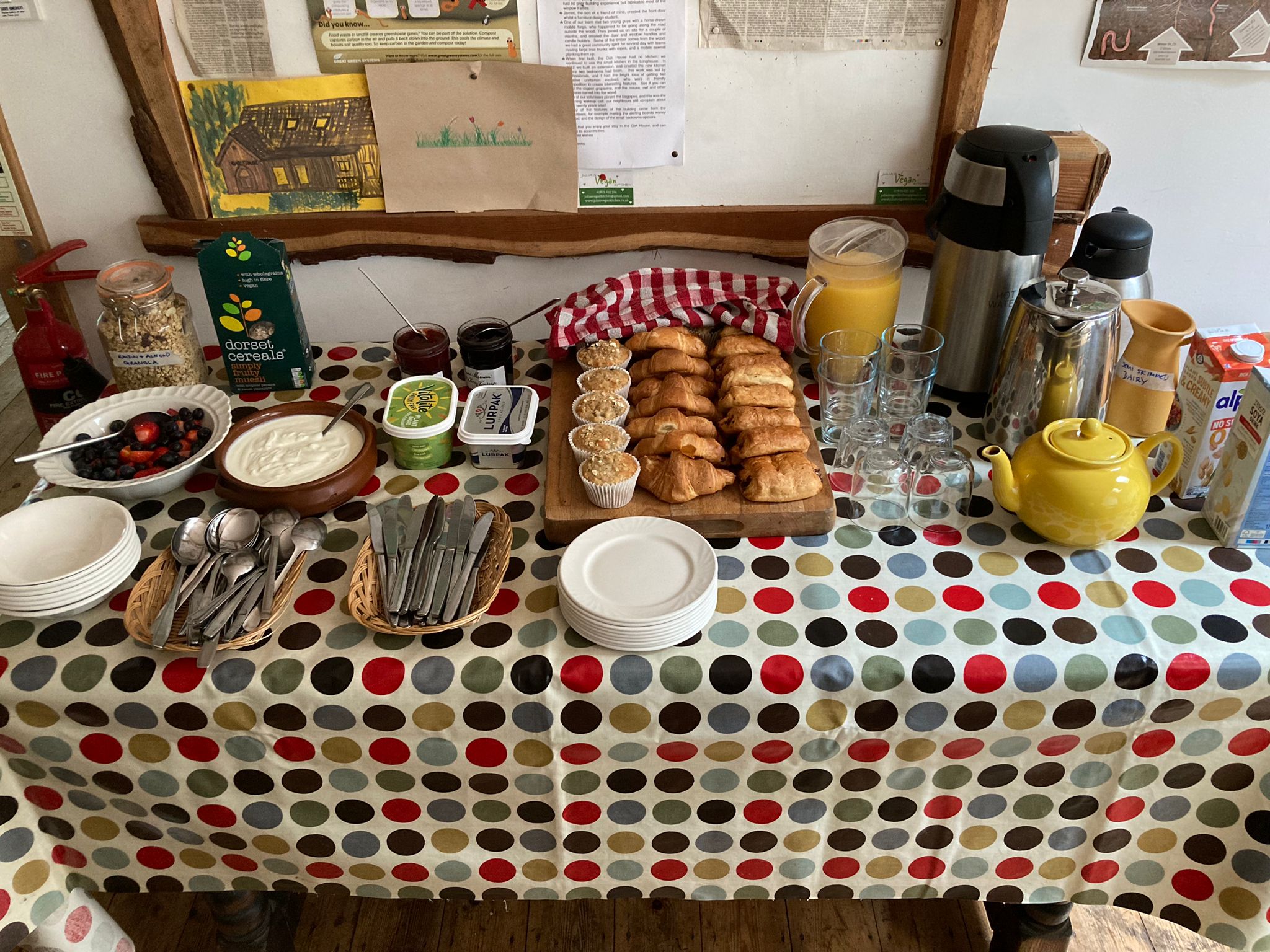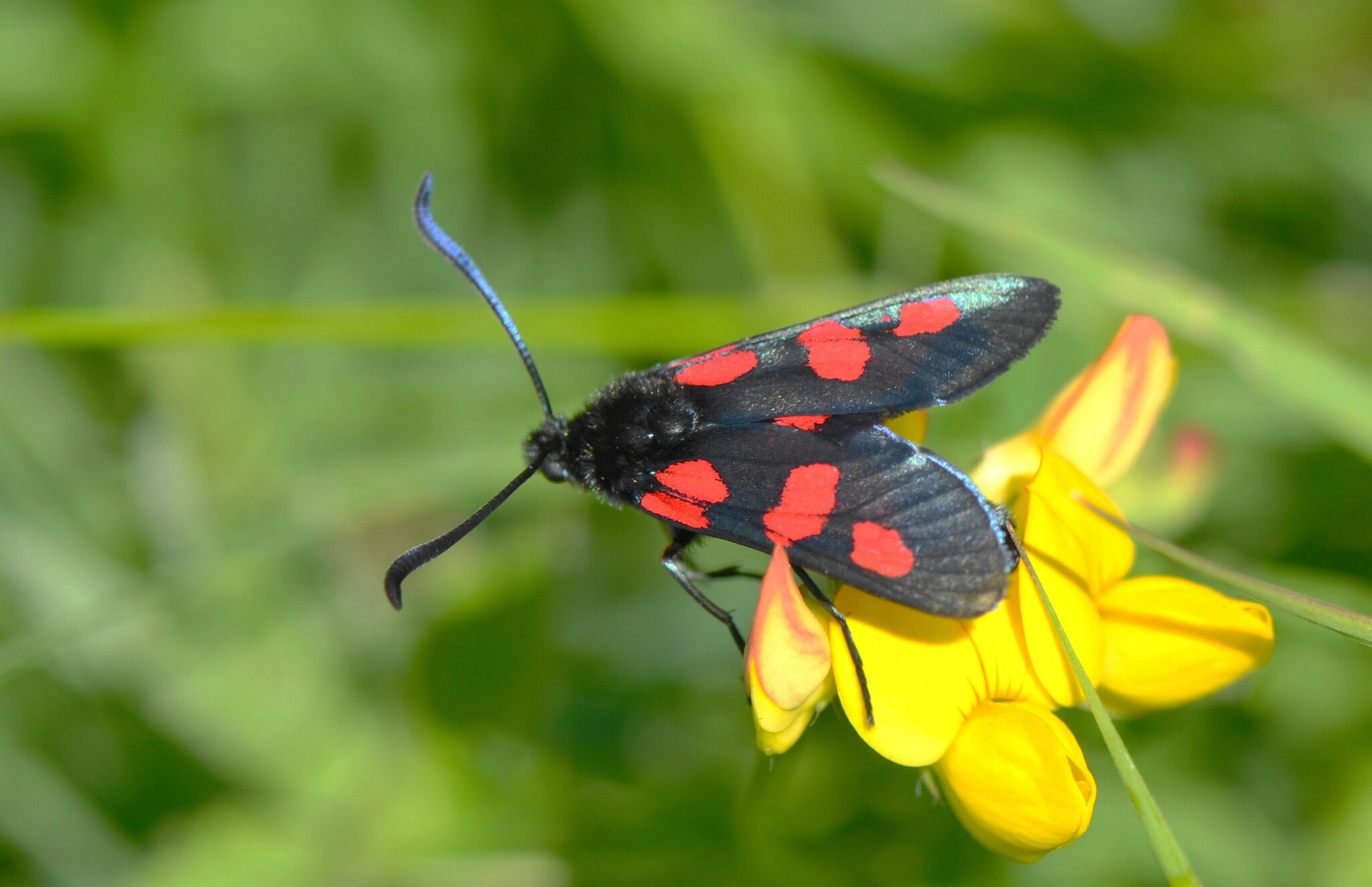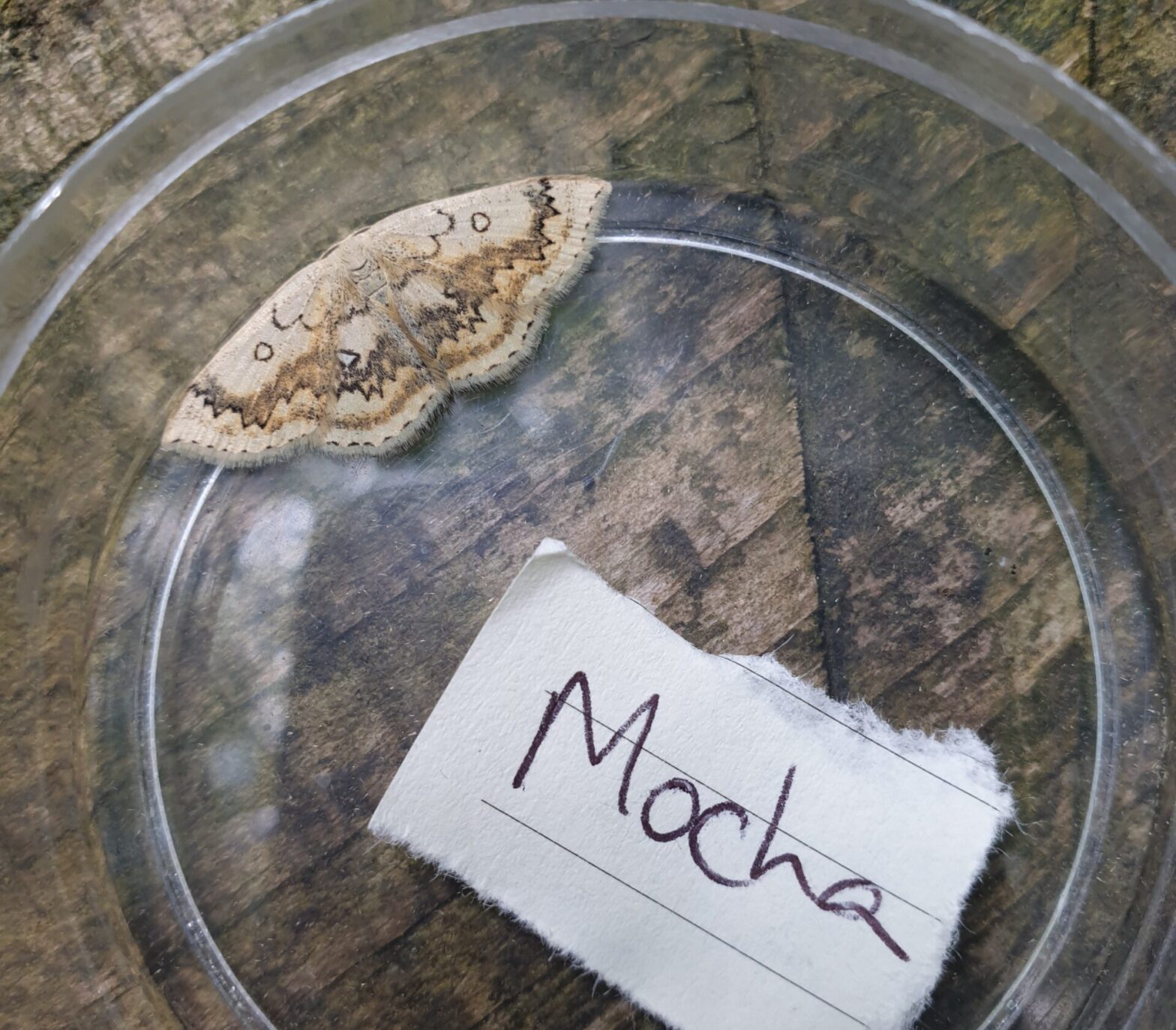‘The Mocha’ moth likes woodland habitats. The caterpillars feed on field maple leaves.
Written by volunteer Polly Whyte
Thanks to an amazing volunteer effort, we recorded more moths in 2023 than any year before. Six nights of light trap surveys were undertaken at Hazel Hill Wood between April and October, plus further species were recorded in their caterpillar (larval) stage in March. In total, the surveys generated 390 moth records, with 207 different species recorded. Of these, over 40 species found are classed as ‘uncommon’ in Wiltshire.
Although most moth species are only active at night, they shouldn’t be ignored – they are a crucial part of our ecosystem. Moths are important pollinators and a food source for birds and bats, plus are indicators of a healthy environment. There are many more moth species in the UK than butterfly species, but they are less well recorded than butterflies. This means information we collect about local moths can make a significant contribution to our knowledge about these amazing insects and help conservation efforts.
One way we survey moths is with a light trap at dusk – a suitable light bulb for attracting moths is suspended in a bucket or box with a funnel on top. The moths are drawn to the light source and get trapped in the bucket or box, which is filled with old egg boxes for the moths to rest in. Later that night or the following morning, we check the traps and identify the moths, before releasing them into long vegetation out of sight of birds.
New for 2023, we introduced a “moth morning with breakfast” at the start of the school summer holidays, catered by trustee Helen Kirk. It was a fantastic and delicious morning! Let us know if you’d like to join one in 2024.
As well as telling us more about our habitats at Hazel Hill Wood, our moth records are shared with county and national recorders, helping build a picture of the state of moths and our ecosystems nationally.
Thank you to our volunteer moth recorders: Laurie, Dave, Granville, Jack, Linda and Charley, for all their time and effort.
If you’d like to get involved with our moth surveys this year, we welcome amateurs and experts of any age, please get in touch with our Education and Conservation Coordinator, Charley, by emailing charley@hazelhill.org.uk.
You can find out more about moths and moth recording on the Butterfly Conservation website.
